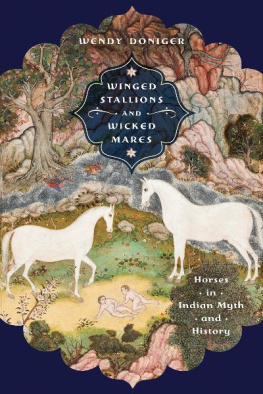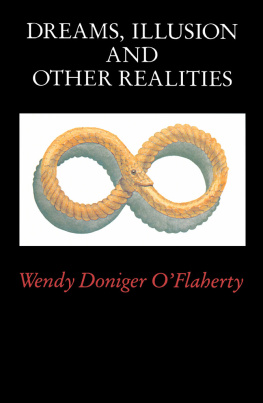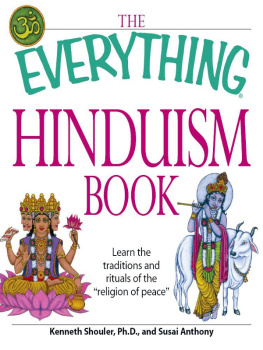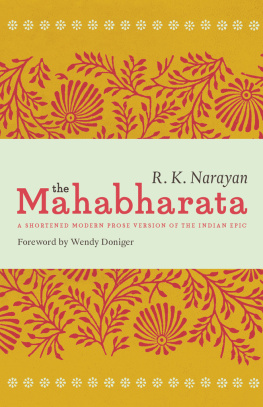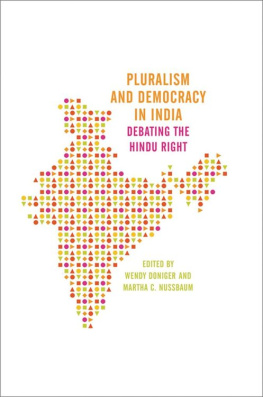THE TERRY LECTURES
Against Dharma
VOLUMES IN THE TERRY LECTURES SERIES AVAILABLE FROM YALE UNIVERSITY PRESS
The Courage to Be Paul Tillich
Psychoanalysis and Religion Erich Fromm
A Common Faith John Dewey
Psychology and Religion Carl G. Jung
Belief in God in an Age of Science John Polkinghorne
One World Now: The Ethics of Globalization Peter Singer
Reason, Faith, and Revolution: Reflections on the God Debate Terry Eagleton
Thinking in Circles: An Essay on Ring Composition Mary Douglas
The Religion and Science Debate: Why Does It Continue? Edited by Harold W. Attridge
Natural Reflections: Human Cognition at the Nexus of Science and Religion Barbara Herrnstein Smith
Absence of Mind: The Dispelling of Inwardness from the Modern Myth of the Self Marilynne Robinson
Islam, Science, and the Challenge of History Ahmad Dallal
The New Universe and the Human Future: How a Shared Cosmology Could Transform the World Nancy Ellen Abrams and Joel R. Primack
The Scientific Buddha: His Short and Happy Life Donald S. Lopez, Jr.
Life After Faith: The Case for Secular Humanism Philip Kitcher
Private Doubt, Public Dilemma: Religion and Science since Jefferson and Darwin Keith Thomson
For a full list of titles in print in the Terry Lectures Series, visit yalebooks.com or yalebooks.co.uk.
Against Dharma
Dissent in the Ancient Indian Sciences of Sex and Politics
WENDY DONIGER
Yale UNIVERSITY PRESS
New Haven and London
Published with assistance from the Louis Stern Memorial Fund.
Copyright 2018 by Wendy Doniger.
All rights reserved.
This book may not be reproduced, in whole or in part, including illustrations, in any form (beyond that copying permitted by Sections 107 and 108 of the U.S. Copyright Law and except by reviewers for the public press), without written permission from the publishers.
Yale University Press books may be purchased in quantity for educational, business, or promotional use. For information, please email (UK office).
Set in Minion type by Newgen North America.
Printed in the United States of America.
Library of Congress Control Number: 2017952014
ISBN 978-0-300-21619-6 (hardcover : alk. paper)
A catalogue record for this book is available from the British Library.
This paper meets the requirements of ANSI/NISO Z39.48-1992 (Permanence of Paper).
10 9 8 7 6 5 4 3 2 1
THE DWIGHT HARRINGTON TERRY FOUNDATION LECTURES ON RELIGION IN THE LIGHT OF SCIENCE AND PHILOSOPHY
The deed of gift declares that the object of this foundation is not the promotion of scientific investigation and discovery, but rather the assimilation and interpretation of that which has been or shall be hereafter discovered, and its application to human welfare, especially by the building of the truths of science and philosophy into the structure of a broadened and purified religion. The founder believes that such a religion will greatly stimulate intelligent effort for the improvement of human conditions and the advancement of the race in strength and excellence of character. To this end it is desired that a series of lectures be given by men eminent in their respective departments, on ethics, the history of civilization and religion, biblical research, all sciences and branches of knowledge which have an important bearing on the subject, all the great laws of nature, especially of evolution... also such interpretations of literature and sociology as are in accord with the spirit of this foundation, to the end that the Christian spirit may be nurtured in the fullest light of the worlds knowledge and that mankind may be helped to attain its highest possible welfare and happiness upon this earth. The present work constitutes the latest volume published on this foundation.
Contents
Preface
The roots of this book stretch down to the first stirrings of my academic career more than half a century ago. My interest in Indian erotics goes back to my Harvard PhD dissertation, Asceticism and Eroticism in the Mythology of Siva, which I worked on with Daniel H. H. Ingalls at Harvard from 1963 to 1968, and published in book form in 1973. And the materials on the violation of dharma circle back to my Oxford University DPhil on The Origin of Heresy in Hindu Mythology, written from 1968 to 1973 under the erratic but inspiring supervision of R. C. Zaehner at All Souls and published in book form in 1976. Later I translated Manu and the Kamasutra and wrote several articles on related subjects, one on the Three Aims as a whole. I also edited, in 1978, a book in which Friedrich Wilhelm published his essay The Concept of Dharma in Artha and Kama Literature. At the other end of the chronology, of this book grew out of my book The Mares Trap: Nature and Culture in the Kamasutra (2015, published in the United States as Redeeming the Kamasutra, 2016).
When I studied the ancient texts about heresy so long ago, I regarded my work as purely an intellectual exercise, but over the years I was always drawn to textsand, indeed, to living movementsthat challenged the dominant paradigm. By the time I was invited to give the Terry Lectures at Yale in 2014, my work had become so tangled with issues of dissent and subversion that my understanding of the importance of the issues at stake in Indian history had deepened considerably. And so, at the end of the lectures and this book, there is an epilogue (or epitaph) on the subversion of science by religion under the present-day government of India. For Prime Minister Narendra Modis attempts to replace genuine science with ludicrous religious science debases not only the work of real scientists working in India today but a strong ancient tradition of scientific opposition to religious dogma, a tradition that we can see at work in the two great texts that are the subject of this book.
Acknowledgments
I owe thanks first and foremost to Yale University for inviting me to give the Terry Lectures in 2014, for the great honor of following in the footsteps of so many scholars whom I admire, including several treasured friends, some now long gonePaul Ricoeur, Clifford Geertz, James Hillman, Mary Douglasbut others happily still presentHans Kung, Donald Lopez, and Philip Kitcher. I am grateful, too, for the warm reception I received at Yale during my stay there, particularly from Stanley Insler and Phyllis Granoff, Greg Sterling and John Donatich, and my sympathetic and wise editor, Jean Thomson Black. In revising the lectures for publication, I benefited enormously from two wonderfully detailed and incisive readers reports, from Patrick Olivelle and Richard Lariviere, who showed me what the book really should be about and how to clarify the arguments and the structure. (Patrick also taught me a tremendous amount about the Arthashastra as he shared with me progressive drafts of his translation.) I owe a great debt to Gavin Flood for inviting me to give a series of seminars on this subject at the Oxford Center for Hindu Studies in November 2013, where I benefited particularly from discussions with Richard Gombrich and Alexis Sanderson. I also learned a great deal from a faculty forum of the Department of South Asian Languages and Civilizations at the University of Chicago on December 2, 2014, with particularly valuable feedback from Thibaut dHubert, Whitney Cox, and Steven Collins. I am indebted to Eli Franco for inviting me to lecture at the Royal Academy of Sciences, Leipzig, in 2015, and for his erudite advice about Charvakas and Lokayatikas. Arshia Sattar, as always, kept me well supplied with news reports on the latest outrages in Modis India. Finally, I am grateful to Susan Neiman for inviting me to present a paper, Why Hindu Nationalists Insist That Ancient Indians Had Nuclear Weapons, at the conference Fetishizing Science at the Einstein Forum in Potsdam, June 911, 2016. I am particularly grateful for valuable feedback from Susan Neiman, Peter Galison, Lorraine Daston, Anthony Grafton, Philip Kitcher, Glenn Most, and Katy Park.
Next page


